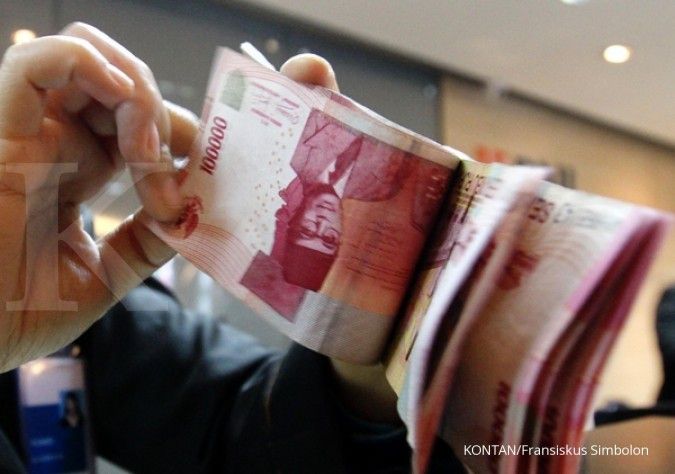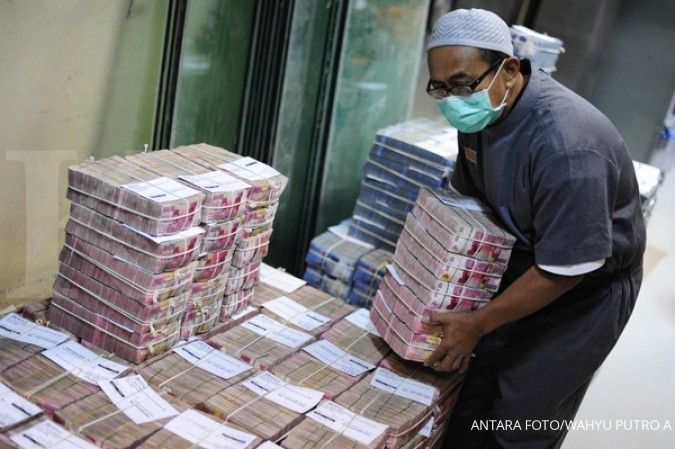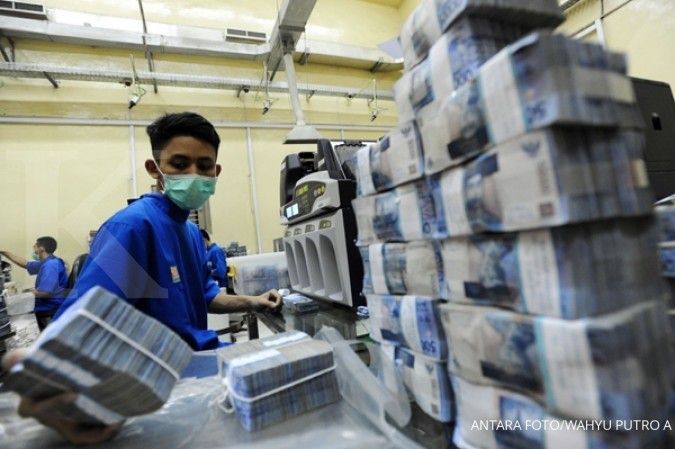JAKARTA. The performance of the rupiah, which has been steadily depreciating against the US dollar, is casting a dark shadow not only on companies with huge, maturing foreign-denominated debts, but also on companies struggling to find room for growth. The rupiah slid 2.1 percent this week, the most since November 2013, to close at 14,686 a dollar, according to a report from
Bloomberg. It fell 0.3 percent on Friday, touching 14,710 per dollar, the weakest level since July 1998. The currency has fallen 9.2 percent so far this quarter in the worst performance in Asia after Malaysia’s ringgit. Standard & Poor’s recent Credit FAQ revealed that the proportion of companies with negative rating outlooks had risen to 20 percent over the past two quarters. In April, the negative outlook stood at less than 10 percent of companies.
“A further depreciation in the rupiah could also complicate refinancing initiatives and raise the funding costs for companies with unhedged US dollar debts,” the ratings agency said. Telecommunications company XL Axiata, for instance, recently repaid an unhedged US$100 million loan to lender United Overseas Bank (UOB) nearly two years ahead of the due date to cushion its bottom line from the impacts of the rupiah’s weakness. XL president director Dian Siswarini said unfavorable global economic conditions had affected the company’s financial performance, with unhedged loans leading the company to record losses on foreign exchange (forex) every quarter. As such, Dian said, the company had decided to bring forward its repayments, adding that the repayment to UOB, which was made with internal cash earlier this month, would not be the last. The company’s losses on forex ballooned from Rp 250.74 billion in the first half of last year to Rp 1.4 trillion in the corresponding period this year, largely as a result of the acquisition of Axis Telekom Indonesia. According to the company’s financial report, around 48 percent of its total $1.55 billion dollar-denominated loans are not hedged. Christopher Chan, president director of tire maker Gajah Tunggal, said last week that his company was restructuring its business and looking to bring in more dollar revenue by boosting exports, adding that resorting to hedging to address foreign-denominated debts was an increasingly expensive option. Gajah Tunggal’s dollar trade account payable stands at nearly $74 million, according to its January-June financial statement, with an additional $500 million in unsecured notes maturing in 2018. The company booked Rp 469 billion in forex losses during the period, compared with Rp 97 billion of gains in the same period last year. Martin Jenkins and Damhuri Nasution from Danareksa Securities said a survey of CEOs had shown that business confidence was deteriorating, with respondents markedly more downbeat about the prospects of the rupiah, which extended its decline following China’s shock move to devalue its currency “In our June-July survey, the Business Sentiment Index tumbled a further 7.0 percent to 117.3, its lowest level since May 2009,” the report said, emphasizing that confidence had declined by a sharp 23 percent since the start of the year.
“Persistent rupiah depreciation is a major concern. More than half of all CEOs now foresee further rupiah depreciation going forward,” the report went on. Jenkins and Damhuri said that sentiment on profits and sales was increasingly negative, forecasting contraction rather than expansion. In addition, liquidity is tightening and the specter of corporate defaults looming, especially if the rupiah slips beyond the psychological threshold of 15,000 per dollar. The index for liquidity fell 3.3 percent between the May and July surveys, while revenue and profit confidence declined by 6 percent and 3.8 percent, respectively, the pair added. (Anggi M Lubis)





